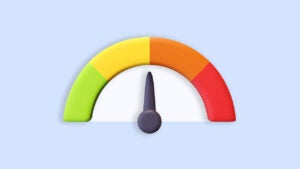Personal loan origination fees: What to know




Key takeaways
- Origination fees are a common cost when borrowing a personal loan, especially if you choose to go with an online lender.
- Expect to pay anywhere from 1 percent to 10 percent of the total loan amount, although the exact fee varies based on several factors.
- Origination fees are deducted from your total loan amount, so make sure you account for them when you determine how much you need to borrow.
When you take out a personal loan, your costs may include more than just principal and interest. One common fee is the origination fee — a charge for processing your application and underwriting the loan. While not all lenders charge this fee, many do, especially for borrowers with fair or bad credit.
Origination fees can quietly add hundreds of dollars to the cost of borrowing, even though you don’t pay them out-of-pocket. To make the smartest borrowing decision, it’s crucial to understand how origination fees work, how much you’ll receive after fees and how to compare total loan costs across lenders.
Bankrate’s take: Don’t assume a loan with no origination fee is always the cheaper option — comparing APRs gives you a fuller picture.
What is a personal loan origination fee?
An origination fee — also called a processing or administrative fee — is charged upfront to cover the cost of issuing a loan. It typically ranges from 1 to 10 percent of the total loan amount, though some bad credit lenders may charge an origination fee of up to 12 percent.
You don’t pay this fee directly. Instead, lenders either deduct it from your loan proceeds or add it to your loan balance. The first option is more common — meaning if you’re approved for a $10,000 loan with a 5 percent fee, you’ll actually receive $9,500.
How does a loan origination fee work?
Let’s say you need $10,000 for debt consolidation or a large expense. If the lender deducts a 5 percent origination fee from the loan, you’d actually have to borrow $10,527 to receive the full $10,000. This is because the origination fee is deducted from your loan amount so that you do not have to pay the money upfront when you borrow.
Keep in mind that you’ll pay interest on the entire amount, not just the money you receive. Even though you receive $10,000, your interest will be based on the entire $10,527 amount. That makes comparing APRs across lenders essential.
Origination fees are most commonly taken out of your loan amount, but in other cases, they may be added to the total amount you borrow. If a lender tries to make you pay an origination fee before you receive your loan, it is a sign of a personal loan scam.

Consumers hate fees. So, why do many personal loans still charge for origination?
Bankrate asked lenders about why they do (or don't) charge origination fees. We also got great tips about how to avoid them entirely.
Learn moreHow are origination fees determined?
Lenders use your financial profile and credit risk to determine your origination fee. The more confident they are in your ability to repay the loan, the lower your fee is likely to be — and vice versa.
Here are some of the key factors lenders use to determine your origination fee:
- Credit score and credit history: A higher credit score signals that you’ve consistently managed debt well in the past, which can lead to a lower origination fee. A history of missed payments or delinquencies may raise red flags and your fee.
- Income level and employment status: Stable, sufficient income shows that you’re capable of repaying the loan. Lenders may also weigh your employment history to assess how reliable your income source is.
- Debt-to-income (DTI) ratio: This ratio compares how much you owe each month to how much you earn. A lower DTI suggests you’re not overextended financially, which can make you a lower-risk borrower — and potentially reduce your origination fee.
- Assets and liabilities: Lenders may look at your net worth — what you own versus what you owe — to get a clearer picture of your financial stability. Having savings, investments or other valuable assets may help strengthen your application.
Are origination fees always worth it?
Not always — but they’re not necessarily a deal-breaker. In some cases, a loan with an origination fee may still be cheaper overall than a loan without one. That’s because some lenders who charge origination fees offer lower interest rates, which can reduce the total cost of the loan over time. Conversely, lenders that advertise “no origination fees” may make up the difference by charging higher interest rates.
How to compare loans with an origination fee
Comparing loans with an origination fee will help you save money over time and ensure that you’re getting the best deal possible. Here’s how to evaluate your options effectively:
1. Get multiple quotes
As with any major financial decision, it pays to shop around. Prequalify with multiple lenders to compare the best personal loan rates, origination fees, loan terms and other conditions — all without affecting your credit score. Carefully review each lender’s full terms, not just the advertised rates, to see how fees and repayment schedules vary.
| Popular personal loan lenders’ origination fees | |
| Lender | Fee |
| Achieve | 1.99% to 8.99% |
| Alliant Credit Union | None |
| American Express | None |
| Best Egg | 0.99% to 9.99% |
| Citibank | None |
| Discover | None |
| Happy Money | 0% to 5% |
| Laurel Road | None |
| LendingPoint | Up to 10% |
| LightStream | None |
| Navy Federal Credit Union | None |
| M&T Bank | None |
| PenFed Credit Union | None |
| Prosper | 1% to 9.99% |
| SoFi | 0% to 7% (optional, to lower your interest rate) |
| Splash Financial | 0% to 12% |
| TD Bank | None |
| Upgrade | 5% |
| USAA | None |
| Upstart | 0% to 12% |
| U.S. Bank | None |
2. Focus on APR, not just the interest rate
The annual percentage rate (APR) includes both the interest rate and mandatory fees like origination charges, giving you a clearer picture of a loan’s true cost. Don’t add the origination fee on top of the APR when calculating costs — again, it’s already included.
For example, let’s say you’re considering two $10,000 loans, each with a 10 percent interest rate and a 5-year term:
| Loan | Origination fee | Approx. APR | Total loan cost |
| Loan A | 3% ($300) | 12.1% | $13,377 |
| Laon B | 5% ($500) | 14.1% | $13,992 |
Even though the base interest rates are identical, Loan B will cost you roughly $615 more over the life of the loan due to its higher origination fee — even though both loans have the same interest rate. Use a personal loan calculator to quickly compare lenders and their APRs.
3. Consider the loan term
Generally, shorter loan terms typically come with lower interest rates, which can help offset the cost of an origination fee. However, they also come with higher monthly payments. Some lenders deduct the origination fee from the loan amount, while others roll it into your monthly payments. If you’re trying to minimize monthly costs, you might prefer a loan with no fee — or one that applies the fee in a way that doesn’t cut into your funds or inflate your payment.
It’s worth asking lenders whether they’re willing to lower or waive the origination fee based on your finances. Some lenders may be willing to:
- Lower or waive the fee to win your business
- Offer better terms if you have excellent credit or multiple competing offers
- Adjust your rate or repayment terms as part of the counteroffer
Bottom line
Origination fees aren’t a guaranteed cost when you borrow a personal loan, but they are very common. If you don’t have excellent credit, it’s likely that the lenders you qualify for charge at least a small origination fee.
With an average personal loan rate of over 12 percent, it’s crucial to compare lenders by total cost. Use the loan’s APR, not its simple interest rate, when determining which option is best for you.
Why we ask for feedback Your feedback helps us improve our content and services. It takes less than a minute to complete.
Your responses are anonymous and will only be used for improving our website.
You may also like

Personal loan documents to gather before you apply

How does payment deferral work for personal loans?

What is the average credit score for personal loans?

